 Wednesday 12 December 2018 2:45pm
Wednesday 12 December 2018 2:45pmSeventeen University of Otago academics have been promoted to the position of professor this year.
Announcing the advancements today, Vice-Chancellor Professor Harlene Hayne commended the new professors, acknowledging their hard work, dedication and ability.
“These promotions highlight the regard with which the individuals, and their work, is held, along with the integrity of their leadership. It also underscores the range of academic talent and expertise across the University of Otago.
“It is wonderful to see people succeeding across disciplines and campuses, with new professors in all four academic divisions from Dunedin, Christchurch and Wellington.
"I look forward to following with interest their teaching, research and service achievements in the future,” Professor Hayne says.
Otago's promotion process involves thorough evaluation of each individual's record of contributions to research, teaching, and service to the University and community. It also involves input from international experts in evaluating the candidates' research contributions.
A further 40 University of Otago academics are being promoted to Associate Professor.
The promotions take effect from 1 February 2019.
Staff promoted to Professor:
Chris Brickell
Department of Sociology, Gender and Social Work
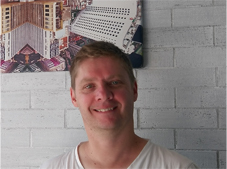 Chris Brickell
Chris Brickell
Chris is a scholar of intimate life and social change. A substantial amount of his work explores the emergence of gay life in New Zealand since the nineteenth century, especially the ways sexuality has been given shape across time and place. His award-winning book Mates and Lovers: A History of Gay New Zealand was made into a stage play. The photographic focus of much of his publishing has pushed boundaries in the writing of New Zealand history, including in his most recent book – Teenagers: The Rise of Youth Culture in New Zealand – which also examines the relationships between culture, social structures and selfhood. He has published a considerable number of book chapters and journal articles and is a winner of the Rowheath Trust Award and Carl Smith Medal for his research. Chris is currently Head of the Department of Sociology, Gender and Social Work.
Chris Button
School of Physical Education, Sport and Exercise Sciences
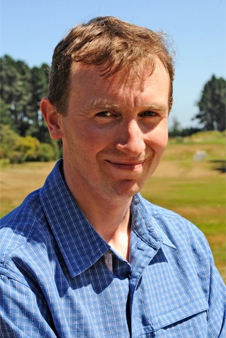 Chris Button
Chris Button
Chris is the Dean of the School of Physical Education, Sport and Exercise Sciences. He gained his PhD in Motor Learning at Manchester Metropolitan University in 2000. He worked at Edinburgh University before moving to Otago in 2003. The processes by which humans learn to move skilfully is the central theme for his research. Chris is passionate about movement and he uses models from sport and physical activity to explain skill acquisition. His research outputs cover a broad range of topics including the assessment of movement competence in children, individual differences, movement variability, and perceptual skill. The theory of ecological dynamics, which underpins his research, is featured in several textbooks he has co-authored. Over the last eight years, Chris has been working closely with Water Safety New Zealand to improve the learning of water safety skills among New Zealanders.
James Crowley
Department of Chemistry
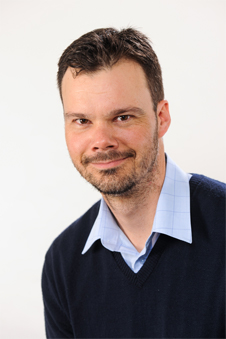 James Crowley
James Crowley
James is a synthetic chemist. He and his research group design and synthesise new functional molecules. The Crowley group have exploited “click” chemistry methods to develop new anti-bacterial and anti-cancer agents through local and international collaborations. It has also created a range of molecular cages that have shown promise for drug delivery and catalysis applications. The group has received funding from several external sources including the Marsden Fund, Otago Medical Research Foundation and the Royal Society (UK). Thanks to the hard work of his group, James has received a number of awards from the New Zealand Institute of Chemistry (NZIC), Royal Australian Chemical Institute, Chemical Society of Japan and the University of Otago. James is a Fellow of the NZIC and RSC, and an Associate Investigator (2017) in the MacDiarmid Institute (CORE). He has also been a member of the NZIC national council for seven years and is the current president of the institute.
Lisa Ellis
Department of Politics
 Lisa Ellis
Lisa Ellis
To make progress on problems like climate change, biodiversity loss, and environmental injustice, people need to coordinate their actions. Lisa is a political theorist who investigates the conditions of possible human coordination in challenging contexts. She began this work as a PhD student at UC-Berkeley, focusing on philosopher Immanuel Kant's ideas about interaction among limited rational beings. Now Lisa applies Kantian insights to problems like the collective ethics of flying (with Otago colleagues James Higham and James Maclaurin), the human value of biodiversity, the principled distribution of the risks of sea-level rise, and the challenge of protecting New Zealand's endemic species. Lisa has been a member of the School of Social Sciences at the Institute for Advanced Study (Princeton), and her work has been supported by the National Endowment for the Humanities among other funders, including most recently the Deep South National Science Challenge.
Peter Fineran
Department of Microbiology and Immunology
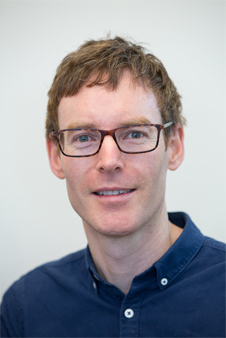 Peter Fineran
Peter Fineran
Peter is a molecular microbiologist whose research aims to understand the interactions between viruses that infect bacteria (phages), antibiotic resistance plasmids, and their bacterial hosts. These interactions are significant contributors to important processes ranging from global nutrient cycles to the dissemination of antibiotic resistance. He has built an internationally-recognised team and is a world leader in bacterial defence mechanisms, particularly the CRISPR-Cas adaptive immune systems. CRISPR-Cas systems have recently been harnessed as biotechnological tools for genome editing, with far-reaching applications in health and agriculture. Peter undertook his PhD and post-doctoral training at the University of Cambridge, UK, before establishing his group at Otago. He has published over 70 papers and is a former recipient of a Rutherford Discovery Fellowship, multiple Marsden Fund grants, and numerous national and international research awards, including the 2019 Fleming Prize from the Microbiology Society, UK.
Jeremy Krebs
Edgar Diabetes and Obesity Research Centre, University of Otago, Wellington
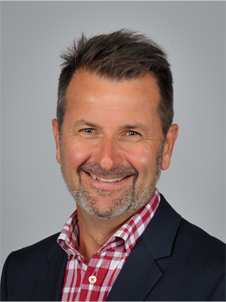 Jeremy Krebs
Jeremy Krebs
Jeremy is an endocrinologist with a particular interest in diabetes and obesity. His research spans the gap between molecular and basic science and public health translation, with a very clinical focus. Supporting and developing junior researchers across multidisciplinary fields including medicine, nursing, nutrition and basic science is important to him. Having completed his doctorate in Human Nutrition Research in Cambridge, UK, his research interests mainly concentrate on the nutritional approaches to addressing obesity and the close link with type 2 diabetes. Using a scientific approach to provide evidence to underpin personal and public health messages, where there is often populist and unsubstantiated information, is a focus; for example, the place for low carbohydrate or high protein diets in weight and diabetes management, and current work in the area of probiotics. He has also developed research in translation and implementation of existing clinical trial evidence into “real world” clinical practice.
Brent Lovelock
Centre for Recreation Research, Department of Tourism
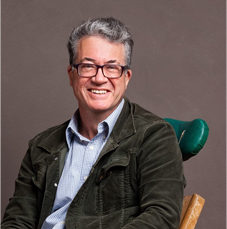 Brent Lovelock
Brent Lovelock
Brent is a social scientist with a passion for advancing sustainable tourism through his research and teaching. The world's largest industry, tourism, has an incredible power to change places, communities and lives. Brent's research considers how we can manage tourism more effectively. He has over 80 peer reviewed publications in this field, including a co-authored a book The Ethics of Tourism, which challenges us to consider more ethical approaches to managing the industry. Brent values engaging his students on this topic as they will play a crucial role as our next generation of sustainable tourism managers. He has supervised 20 PhD students to completion in the area of sustainable tourism, and is part of a University team that has undertaken a seven year programme of research on education for sustainability. Brent and his research collaborators have received numerous research grants and undertaken multiple research consultancies for government, industry and community partners.
Brendan McCane
Department of Computer Science
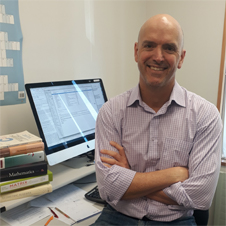 Brendan McCane
Brendan McCane
Brendan's research is on the boundary between machine learning and computer vision. That is, how to get a computer to learn what is in an image based on example images. Some of his early work in this area included face detection and face recognition algorithms – similar to the algorithms that now run on all smart phones and social media platforms. His work encompasses applications in medical and biological imaging including interpreting x-rays of the lumbar spine and the facial skeleton. Recently he has made contributions to the theory of deep neural networks and deep learning, and to self-learning robotics. Brendan is also a passionate teacher and has an ongoing research project on how to best teach computer programming to novice programmers with a focus on mastery learning.
Alister Neill
Department of Medicine, University of Otago, Wellington
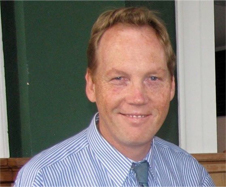 Alister Neill
Alister Neill
Alister's research interests include the epidemiology and pathophysiology of obstructive sleep apnoea (OSA), its relationship to cardiovascular disease, sleep health disparity, new sleep health technologies, dietary compounds to improve sleep and alertness, home non-invasive ventilation (NIV) and pneumonia. He has published 46 papers in high-impact peer review journals, chapter authored Australasian Sleep Medicine (2017), and co-authored professional guidelines. He has formed important research collaborations and is currently leading research into the respiratory impact of neuromuscular diseases, physiological OSA traits and novel treatments for OSA. In 1997 he established the UOWs WellSleep Sleep Investigation Centre and Research Group where, as its director, he has fostered the training and careers of scientists, advanced trainee physicians and research students. In his clinical role he works as a consultant physician providing clinical leadership for the Sleep and home NIV (175 patients) services across three regional DHBs.
Lachy Paterson
Te Tumu: School of Māori, Pacific and Indigenous Studies
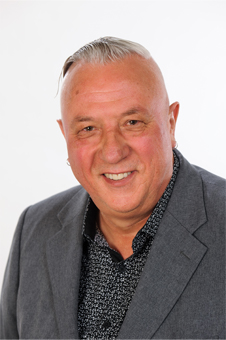 Lachy Paterson
Lachy Paterson
New Zealand's cultural institutions are bursting with Māori-language manuscripts and publications. Lachy is a Te Tumu-based scholar who uses this archival material in his research and teaching, in particular the niupepa (Māori-language newspapers) of the nineteenth and early twentieth-centuries. He has published widely on aspects of Māori social, political and religious history, including Māori-Pākehā race relations, the writings of Māori intellectuals, and the discourses produced by pan-Māori movements such as the Kīngitanga, Kotahitanga, and the Young Māori Party. Lachy's research also explores the impact of the niupepa and textual culture more generally on Māori society. He is currently investigating, with Associate Professor Angela Wanhalla (History), Māori experiences of the home front during World War II, funded by a Marsden grant. Lachy has undertaken a number of service roles in the University and is an active member of the University of Otago's Centre for Research on Colonial Culture.
Lynette Sadleir
Department of Paediatrics and Child Health, University of Otago, Wellington
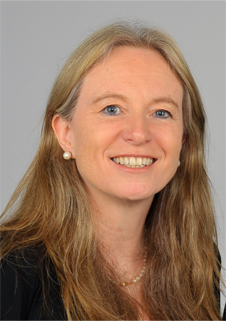 Lynette Sadleir
Lynette Sadleir
Lynette is an epileptologist and physician scientist and the director of the Epilepsy Research Group at the University of Otago, Wellington. Epilepsy is the most common serious brain disorder worldwide. Most people with epilepsy live normal lives but many of them have severe forms of this disorder associated with intellectual disability, autism, social difficulties, mental illness and early death. Lynette's research group is committed to improving the quality of life for individuals with epilepsy and their families. It aims to identify and define the different types of epilepsy and find the genes that cause them. Over 1,600 New Zealanders are participating in her epilepsy genetics project. Discovered epilepsy genes are quickly added to clinical gene panels used internationally for the genetic diagnosis of epilepsy. Identifying new epilepsy genes is the necessary first step for the development of targeted new treatments that will alter the course of these disorders.
Michael Schultz
Department of Medicine (DSM)
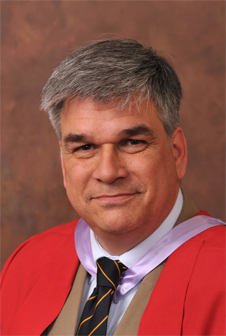 Michael Schultz
Michael Schultz
Inflammatory bowel disease (IBD) is a group of chronic disorders which can have debilitating effects on some patients. The incidence of IBD is increasing and affects mainly young people in their productive years. The disease is thought to be the result of an over aggressive response of the gut immune system towards microorganisms . For many years, the fundamental aspect of Michael's research has been to understand the interaction of the host immune system with the gut microbiota, initially using animal models and cell cultures with the development of organoids (mini-guts) in the laboratory and later translating his findings to help patients. As a clinician, he aims to improve the care of patients with IBD through better access to new medications and the development of non-medical interventions. He is also using digital technology, through applications on smart phone devices and telemedicine to assist the timely access and efficacy of clinical care.
Martin Sellbom
Department of Psychology
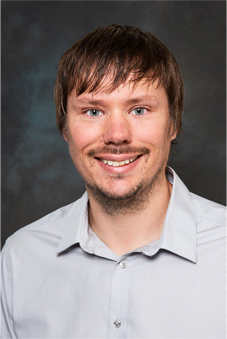 Martin Sellbom
Martin Sellbom
Martin's research programme concerns two distinct but related fields. First, his work focuses on the theoretical understanding, evaluation, and diagnosis of personality disorders, which are those that are associated with problems in relating to and getting along with other people, and tend to be relatively chronic and enduring in people, especially if left untreated. A particular aim involves improving how these diagnoses are described and used in our diagnostic manuals. He is particularly interested in the psychopathic personality disorder, which concerns individuals who tend to be (among other things) highly self-centered, manipulative, coldhearted, unempathic, and remorseless. A second area of research concerns applied clinical personality assessment. More specifically, Martin evaluates psychological test instruments that are used to evaluate people for symptoms of mental health problems and maladaptive personality traits with respect to accuracy in measurement, validity, and utility. He is particularly focused on the MMPI instruments, which are among the most common in psychological practice.
Sheila Skeaff
Department of Human Nutrition
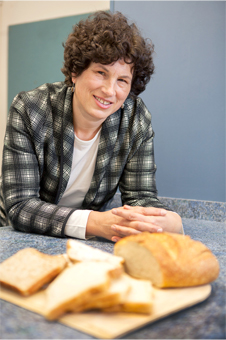 Sheila Skeaff
Sheila Skeaff
Iodine is a nutrient that is needed by the body for normal growth and development. Because the level of iodine in New Zealand soil is low, the amount of iodine that we get in food, and the health consequences of not getting enough iodine, has been the focus of Sheila's research. With colleagues, she has measured the iodine status of children, adults and pregnant women, demonstrating the re-emergence of mild iodine deficiency in the 1990s, likely due to changes in food habits and practices. More recently, she has evaluated the effectiveness of government strategies to increase iodine intakes, such as the mandatory use of iodised salt in commercial breads, and the recommendation for all pregnant and breastfeeding women to take iodine supplements. Sheila is an enthusiastic educator about nutrition, including iodine, gaining national recognition with an Ako Aotearoa tertiary teaching award.
Lois Surgenor
Department of Psychological Medicine, University of Otago, Christchurch
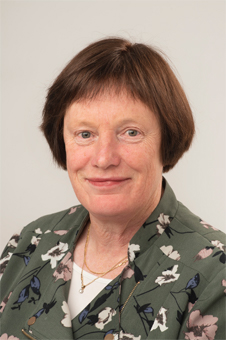 Lois Surgenor
Lois Surgenor
Lois gained her PhD in 2002, preceded by 15 years working as a clinical psychologist in mental health services. She has worked for the University since 1996, principally in joint-clinical positions with a later shift to Associate Dean roles within the Division of Health Sciences. Her research career has principally focused on the underlying theme of “mental health condition stumbling blocks” as these relate to cause (“how did this outcome happen to this person”), effective assessments (“how do we assess this”) and evidenced-based ethical practice (“what's the right thing to do with what we've got”). These questions have been mainly applied to the fields of eating disorders and mild traumatic brain injury. A second research theme has been in health practitioner regulation, collaborating with academic lawyers. Lois is an associate editor of the Journal of Eating Disorders and on the editorial board of Eating Disorders: The Journal of Treatment and Prevention.
Hazel Tucker
Department of Tourism
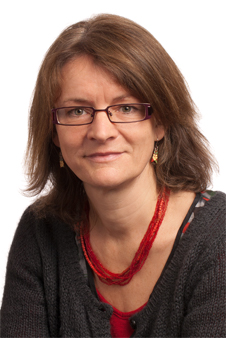 Hazel Tucker
Hazel Tucker
With a background in social anthropology, Hazel investigates tourism's influence on socio-cultural identities, relationships and change. She asks: What does, or potentially what can, tourism do within contemporary society and culture? For over two decades Hazel has conducted ethnographic research on tourism development at a World Heritage Area in central Turkey. The focus has been on World Heritage values, rural community entrepreneurial development, gender and poverty alleviation, and tourism-refugee interactions. The longitudinal nature of this research in one destination has allowed Hazel to track development and social change over a 20 year period. Other areas of Hazel's research include examining emotions in tourism, such as the relationship between tourism and empathy, shame, fear (for the future), and how tourism affects our capacity for hope. Recently, she has participated in a collaborative program of research that aims to better understand Chinese domestic and outbound tourism.
Ceri Warnock
Faculty of Law
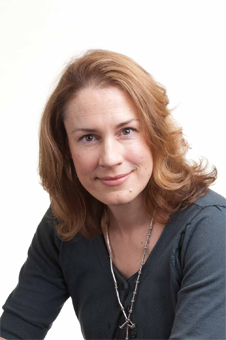 Ceri Warnock
Ceri Warnock
Ceri researches environmental law. Her earlier career as a public law barrister led to an interest in how complex legal disputes are resolved – particularly environmental disputes that impact legal rights but require adjudicators to predict future effects, determine collective-action problems and operate in areas of “factual” uncertainty. Ceri's work demonstrates how law is developed through an iterative, interactional process in this context, with legal, scientific and cultural expertise co-producing law. In turn, this process causes us to re-think traditional notions of adjudication, law, governance and legitimacy. Her current work focuses on developing frames of normative legitimacy for this form of law-making. Ceri's research has been published in august international journals, cited in case law, and quoted by Supreme Court judges. She writes the text book in her subject, was awarded the New Zealand Law Foundation International Research Fellowship and gave the Salmon Lecture in 2018.
Staff promoted to Associate Professor:
Tobias Langlotz (Department of Information Science); Sara Walton (Department of Management); Andrea Insch (Department of Marketing); Leah Watkins (Department of Marketing); Heather Brooks (Department of Pathology (DSM)); Lianne Parkin (Department of Preventive and Social Medicine (DSM)); Nicola Swain (Department of Psychological Medicine (DSM)); Joanna Williams (Department of Anatomy); Stephanie Woodley (Department of Anatomy); Stephanie Hughes (Department of Biochemistry); Elizabeth Ledgerwood (Department of Biochemistry); Joanna Kirman (Department of Microbiology and Immunology); Kirk Hamilton (Department of Physiology); Peter Jones (Department of Physiology); Alexander Tups (Department of Physiology); Rebecca Grainger (Department of Pathology & Molecular Medicine (UOW) and Medicine (UOW)); Angela Ballantyne (Department of Primary Healthcare and General Practice (UOW)); Maria Stubbe (Department of Primary Healthcare and General Practice (UOW)); Arlene McDowell (School of Pharmacy); Gisela Sole (School of Physiotherapy); David Ciccoricco (Department of English and Linguistics); Thomas McLean (Department of English and Linguistics); Candler Rogers (Department of English and Linguistics); Douglas Hill (Department of Geography); Wayne Stephenson (Department of Geography); Cecilia Novero (Department of Languages and Cultures); Hugh Slotten (Department of Media, Film and Communication); Kay Siang Khoo (Department of Politics); Susan Sandretto (College of Education); Miranda Mirosa (Department of Food Sciences); Mikkel Andersen (Department of Physics); Tamlin Conner (Department of Psychology); Gareth Treharne (Department of Psychology); Lynnette Jones (School of Physical Education, Sport & Exercise Sciences).
Research Associate Professors: Kirsten Coppell (Department of Medicine (DSM)); Yiwen Zheng (Pharmacology and Toxicology); Logan Walker (Department of Pathology (UOC)); Jacqueline Keenan (Department of Surgery (UOC)); James Stanley (Dean's Department (UOW)); Ricci Harris (Department of Public Health (UOW)).
For more information, contact:
Ellie Rowley
Communications Adviser
University of Otago
Email: ellie.rowley@otago.ac.nz
FIND an Otago Expert
Use our Media Expertise Database to find an Otago researcher for media comment.